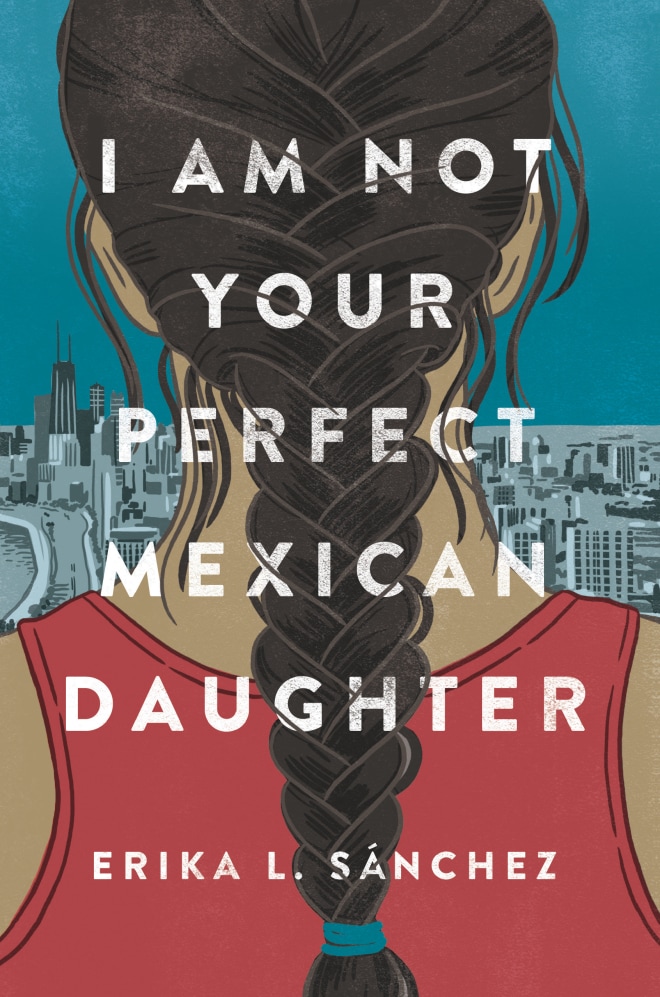- Home
- About
- Submit
- Features
- Interviews
- Book Reviews
- Previous Issues
- Blog
- Contact
-
Issue #25 Spring 2023
- Issue #25 Art Spring 2023 >
-
Issue #25 Poetry Spring 2023
>
- Emma Bolden Spring 2023
- Ronda Piszk Broatch Spring 2023
- M. Cynthia Cheung Spring 2023
- Flower Conroy Spring 2023
- Jill Crammond Spring 2023
- Sandra Crouch Spring 2023
- Satya Dash Spring 2023
- Rita Feinstein Spring 2023
- Dan Fliegel Spring 2023
- Lisa Higgs Spring 2023
- Dennis Hinrichsen Spring 2023
- Mara Jebsen Spring 2023
- Abriana Jetté Spring 2023
- Letitia Jiju Spring 2023
- E.W.I. Johnson Spring 2023
- Ashley Kunsa Spring 2023
- Susanna Lang Spring 2023
- James Fujinami Moore Spring 2023
- Matthew Murrey Spring 2023
- Pablo Otavalo Spring 2023
- Heather Qin Spring 2023
- Wesley Sexton Spring 2023
- Ashish Singh Spring 2023
- Sara Sowers-Wills Spring 2023
- Sydney Vogl Spring 2023
- Elinor Ann Walker Spring 2023
- Andrew Wells Spring 2023
- Erin Wilson Spring 2023
- Marina Hope Wilson Spring 2023
- David Wojciechowski Spring 2023
- Jules Wood Spring 2023
- Ellen Zhang Spring 2023
- BJ Zhou Spring 2023
- Jane Zwart Spring 2023
- Issue #25 Fiction Spring 2023 >
- Issue #25 Nonfiction Spring 2023 >
-
Issue #26 Fall 2023
- Issue #26 Art Fall 2023 >
-
Issue #26 Poetry Fall 2023
>
- Fasasi Abdulrosheed Oladipupo Fall 2023
- Christopher Ankney Fall 2023
- Magdalena Arias Vásquez Fall 2023
- John Peter Beck Fall 2023
- Mihir Bellamkonda Fall 2023
- Benjamin Bellas Fall 2023
- Michael Carson Fall 2023
- Kevin Clark Fall 2023
- Aaron Coleman Fall 2023
- Mark DeCarteret Fall 2023
- Denise Duhamel Fall 2023
- Brandel France de Bravo Fall 2023
- Tina Gross Fall 2023
- Amorak Huey Fall 2023
- James Kimbrell Fall 2023
- Casey Knott Fall 2023
- Stephen Lackaye Fall 2023
- Cynthia Manick Fall 2023
- Savannah McClendon Fall 2023
- John Muellner Fall 2023
- Mollie O’Leary Fall 2023
- Joel Peckham Fall 2023
- Natalia Prusinska Fall 2023
- henry 7. reneau, jr. Fall 2023
- Esther Sadoff Fall 2023
- Hilary Sallick Fall 2023
- Kelly R. Samuels Fall 2023
- Issue #26 Fiction Fall 2023 >
-
Issue #27 Spring 2024
- Issue #27 Art Spring 2024 >
-
Issue #27 Poetry Spring 2024
>
- Terry Belew Spring 2024
- Dustin Brookshire & Diamond Forde Spring 2024 Spring 2024
- Dustin Brookshire & Caridad Moro-Gronlier Spring 2024 Spring 2024
- Charlie Coleman Spring 2024
- Isabelle Doyle Spring 2024
- Reyzl Grace Spring 2024
- Kelly Gray Spring 2024
- Meredith Herndon Spring 2024
- Mina Khan Spring 2024
- Anoushka Kumar Spring 2024
- Cate Latimer Spring 2024
- BEE LB Spring 2024
- Grace Marie Liu Spring 2024
- Sarah Mills Spring 2024
- Faisal Mohyuddin 2024
- Marcus Myers Spring 2024
- Mike Puican Spring 2024
- Sarah Sorensen Spring 2024
- Lynne Thompson Spring 2024
- Natalie Tombasco Spring 2024
- Alexandra van de Kamp Spring 2024
- Donna Vorreyer Spring 2024
- Fiction #27 Spring 2024 >
- Nonfiction #27 Spring 2024 >
Book Review: Erika L. Sánchez's I Am Not Your Perfect Mexican Daughter
Erika L. Sánchez is a Mexican-American novelist, essayist, and poet residing in Chicago. Sánchez graduated from the University of Illinois, then transferred to the University of New Mexico, where she earned her MFA in Creative Writing. Erika L Sánchez is the recipient of the CantoMundo Fellow, Bread Loaf Scholar, and winner of the “Discovery”/Boston Review Prize. She was awarded the Ruth Lilly and Dorothy Sargent Rosenberg Poetry Fellowship from the Poetry Foundation in 2015. Recently, she was named a 2017-2019 Princeton Arts Fellow. Her work includes: her young adult novel, I Am Not Your Perfect Mexican Daughter, and her poetry collection, Lessons on Expulsion. Currently, she is working on a collection of personal essays and poetry.
|
Review
|
A Review of Erika L. Sánchez's I Am Not Your Perfect Mexican Daughter by Miguel Soto
Erika L. Sanchez’s I Am Not Your Perfect Mexican Daughter is a fantastic addition to Transcultural Latinx literature, which places an emphasis on growing up on the south side of Chicago as a first-generation teen. Julia, the novel’s protagonist, is a quick-witted teenager, who is constantly being compared to “Saint Olga, the perfect Mexican daughter.” Olga serves as the perfect foil to Julia’s dark humored life. Julia jokes her way through Olga’s funeral, “where did they find this mortician, the flea market(?),” through high school, “I want to get all Bartelby about it, tell him I don’t fucking feel like it,” and practically through life, “como me gusta la mala vida.” Sánchez uses marked code-switching throughout her work, never italicized, but translated to offer an inclusive experience for all readers. Julia’s dynamic relationship with her mother takes a universal approach. The confrontations between mother and daughter are recognized by all audiences, but the added language, “ay como nos haces sufrir. No se si maldecirte o por ti rezar,” gives a unique experience that most first-generation Mexican-Americans will understand and appreciate, as they are picking themselves up off the ground, regaining breath from laughing so hard. The full cast of characters includes a multitude of identities and experiences. I Am Not Your Perfect Mexican Daughter captures a realistic narrative of the disillusioned immigrant consciousness. Julia’s parents are constantly caught up in allá, the idea of returning home to Los Ojos, Mexico. Their hard-work is rarely rewarded, and their nights out end with the “cockroach dance, which consists of stomping all over the kitchen floor, because they have a party whenever we’re not home.” Memories of home are full of joy and happiness, while memories of the United States are filled with grief and poverty. Sánchez also includes a cast of queer characters, the most prominent being Juanga, who is consistently kicked out of his home for refusing to adopt heteronormative characteristics. Sánchez respectfully gives each of her characters a substantive background and identity. The beautiful Chicago setting is an added perk to reading I Am Not Your Perfect Mexican Daughter. Erika L. Sánchez’s humor is used to question the traditional conventions of gender roles, sexuality, race, and overall, coming to age dilemmas. Her novel represents a large sector of the Latinx community, but is more than open to all audiences. Through all the teenage angst, the overall themes of grief are evident, “how do we laugh and feel happiness despite the buried things growing inside?” The reader is left questioning two valid sides, but the conflict only raises more questions, “how can I ever give this to my parents, something else to love, something dead?” The geopolitical landscape becomes synonymous to Julia’s life, “a giant wound, a big gash between two countries,” making I Am Not Your Perfect Mexican Daughter the perfect novel for young adult readers who are looking to enter the complex, open world of Latinidad. |
|
Miguel is the Asst. Managing Editor and Book Review Editor for Jet Fuel Review. As an editor, one of his main concerns is giving a space to marginalized voices, centralizing on narratives often ignored. He loves reading radical, unapologetic writers, who explore the emotional and intellectual stresses within political identities and systemic realities. His own writings can be found in OUT / CAST: A Journal of Queer Midwestern Writing and Art, The Rising Phoenix Review, and Rogue Agent. He writes for the Jet Fuel Review blog in Not Your Binary: A QTPOC Reading Column.
|
- Home
- About
- Submit
- Features
- Interviews
- Book Reviews
- Previous Issues
- Blog
- Contact
-
Issue #25 Spring 2023
- Issue #25 Art Spring 2023 >
-
Issue #25 Poetry Spring 2023
>
- Emma Bolden Spring 2023
- Ronda Piszk Broatch Spring 2023
- M. Cynthia Cheung Spring 2023
- Flower Conroy Spring 2023
- Jill Crammond Spring 2023
- Sandra Crouch Spring 2023
- Satya Dash Spring 2023
- Rita Feinstein Spring 2023
- Dan Fliegel Spring 2023
- Lisa Higgs Spring 2023
- Dennis Hinrichsen Spring 2023
- Mara Jebsen Spring 2023
- Abriana Jetté Spring 2023
- Letitia Jiju Spring 2023
- E.W.I. Johnson Spring 2023
- Ashley Kunsa Spring 2023
- Susanna Lang Spring 2023
- James Fujinami Moore Spring 2023
- Matthew Murrey Spring 2023
- Pablo Otavalo Spring 2023
- Heather Qin Spring 2023
- Wesley Sexton Spring 2023
- Ashish Singh Spring 2023
- Sara Sowers-Wills Spring 2023
- Sydney Vogl Spring 2023
- Elinor Ann Walker Spring 2023
- Andrew Wells Spring 2023
- Erin Wilson Spring 2023
- Marina Hope Wilson Spring 2023
- David Wojciechowski Spring 2023
- Jules Wood Spring 2023
- Ellen Zhang Spring 2023
- BJ Zhou Spring 2023
- Jane Zwart Spring 2023
- Issue #25 Fiction Spring 2023 >
- Issue #25 Nonfiction Spring 2023 >
-
Issue #26 Fall 2023
- Issue #26 Art Fall 2023 >
-
Issue #26 Poetry Fall 2023
>
- Fasasi Abdulrosheed Oladipupo Fall 2023
- Christopher Ankney Fall 2023
- Magdalena Arias Vásquez Fall 2023
- John Peter Beck Fall 2023
- Mihir Bellamkonda Fall 2023
- Benjamin Bellas Fall 2023
- Michael Carson Fall 2023
- Kevin Clark Fall 2023
- Aaron Coleman Fall 2023
- Mark DeCarteret Fall 2023
- Denise Duhamel Fall 2023
- Brandel France de Bravo Fall 2023
- Tina Gross Fall 2023
- Amorak Huey Fall 2023
- James Kimbrell Fall 2023
- Casey Knott Fall 2023
- Stephen Lackaye Fall 2023
- Cynthia Manick Fall 2023
- Savannah McClendon Fall 2023
- John Muellner Fall 2023
- Mollie O’Leary Fall 2023
- Joel Peckham Fall 2023
- Natalia Prusinska Fall 2023
- henry 7. reneau, jr. Fall 2023
- Esther Sadoff Fall 2023
- Hilary Sallick Fall 2023
- Kelly R. Samuels Fall 2023
- Issue #26 Fiction Fall 2023 >
-
Issue #27 Spring 2024
- Issue #27 Art Spring 2024 >
-
Issue #27 Poetry Spring 2024
>
- Terry Belew Spring 2024
- Dustin Brookshire & Diamond Forde Spring 2024 Spring 2024
- Dustin Brookshire & Caridad Moro-Gronlier Spring 2024 Spring 2024
- Charlie Coleman Spring 2024
- Isabelle Doyle Spring 2024
- Reyzl Grace Spring 2024
- Kelly Gray Spring 2024
- Meredith Herndon Spring 2024
- Mina Khan Spring 2024
- Anoushka Kumar Spring 2024
- Cate Latimer Spring 2024
- BEE LB Spring 2024
- Grace Marie Liu Spring 2024
- Sarah Mills Spring 2024
- Faisal Mohyuddin 2024
- Marcus Myers Spring 2024
- Mike Puican Spring 2024
- Sarah Sorensen Spring 2024
- Lynne Thompson Spring 2024
- Natalie Tombasco Spring 2024
- Alexandra van de Kamp Spring 2024
- Donna Vorreyer Spring 2024
- Fiction #27 Spring 2024 >
- Nonfiction #27 Spring 2024 >


